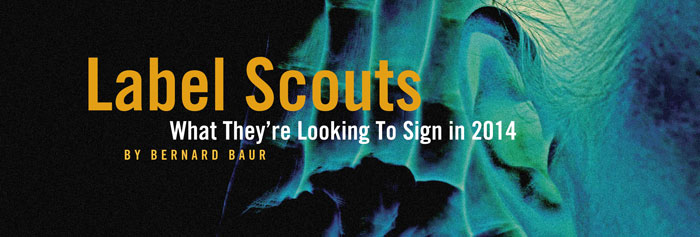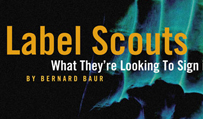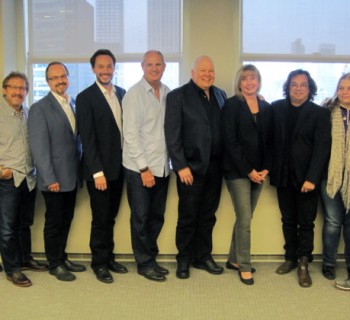

SIRE RECORDS
(Warner Bros.)
Eric McLellan, Director A&R
Eric McLellan has worn a lot of hats in the music industry. He studied music business in college, worked as an A&R intern at Universal Motown in 2004, did video production at Sony Music (where he worked with Alicia Keys, Avril Lavigne, Wyclef Jean, Sean Kingston, Omarion and Bow Wow, to name a few), and joined Sire Records in 2008. He now handles A&R for Delta Rae, Kill It Kid, Ewert & the Two Dragons and Deniro Farrar.
What’s the most difficult part of your job?
Well, it all starts with A&R. Because of that, it’s very demanding. You have to try to satisfy everyone, from the artists to label executives to each department at the label. And in this business there are a lot of egos to deal with.
How is your label different?
The culture here is like a family; we all work together. And working with an icon like Seymour Stein is amazing. Although we’re part of a major label, we operate more like an indie label. Our brand tends to be a little left of center and cutting edge. In fact, I just signed a band from Estonia that sold 30,000 records on their own.
Do you develop acts?
At Sire, we like to get involved early. We don’t want to wait for a bidding war. So, development is part of that. As long as we believe in the music, we’ll work on the rest of it.
How do you evaluate artists?
It starts with the music. If an act doesn’t have strong songs, they’re not going to get much attention. In fact, I prefer artists who write their own material. Visual aspects are also important; I learned that working on videos.
How do you discover new talent?
I get referrals from people and I also like to check out YouTube. It’s a nice starting point and really helpful. You can see how many views a video has gotten, read viewer comments and even examine the analytics.
What is your signing process?
Every deal is different, but all of them take some time. You have to make sure you can work together. The process could be as quick as three months, or much longer. It depends on the people involved and how contract negotiations are handled.
Are you looking for anything in particular?
My niche is Americana and hip-hop. I know that might sound strange, but they’re both a form of “roots” music. My background includes being a DJ and I love hip-hop. I turned friends on to new music and acts all the time. Now, I’m doing that for a living.
Do you see any trends in the business?
It’s a great time for independent artists. There are a lot of opportunities and artists can do a lot for themselves today to advance their careers.
Then why would a successful DIY act need
a label?
Indie artists can only do so much. If they work hard and are good enough they can make a living. But, if they want more, like major airplay, a professional team with marketing savvy and worldwide exposure, they’re going to need label support.
Do you have any pet peeves that would keep you from signing an act?
If an act refuses to listen and consider new ideas that could be a problem. Also, artists need to be team players today. They can’t live in a creative bubble anymore. They have work to do, beyond making and playing music, just like everyone else. It’s a team effort and artists should embrace that.
How do you like to be contacted?
You can follow me on Twitter: @EricMcLellan.












